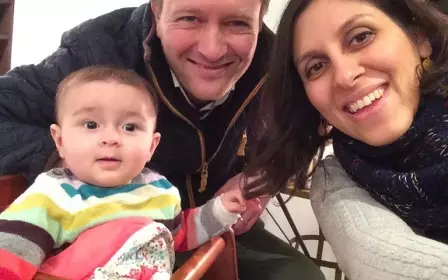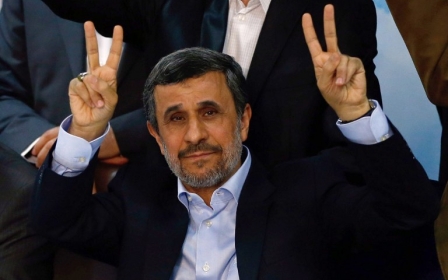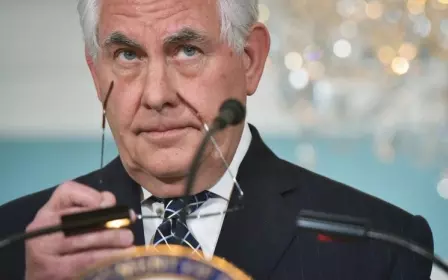Rouhani criticises decision to ban live election debates in Iran

Iran's interior ministry said Thursday there would be no live debates in the run-up to next month's presidential election.
"Based on a decision by the Election Campaign Monitoring Commission, the election debates of the candidates will be broadcast pre-recorded," interior ministry spokesman Seyed Salman Samani said.
President Hassan Rouhani, who has registered to run for a second term in the May 19 election, called for the decision to be reviewed.
"I don't want to interfere... but I would like the election headquarters to review these discussions," he said, according to state news agency IRNA.
The election commission also issued guidelines for the debates, telling candidates they are not allowed to "blacken the image of the country... or the actions of the executive, administrative, legislative or judicial bodies".
Live debates have been a hugely popular feature of the last two elections in 2009 and 2013, with many analysts saying Rouhani's performance was key to his surprise victory last time.
Conservative candidate Alireza Zakani slammed the ban, saying it would "seriously damage transparency".
The heated TV debates in 2009 between hardline president Mahmoud Ahmadinejad and his reformist opponents fired up the electorate and were seen as partly responsible for the post-election unrest that occurred when Ahmadinejad was re-elected amid allegations of vote-rigging.
More than 1,600 people have signed up to run in the election on 19 May.
That number will be whittled down by the conservative-dominated Guardian Council in the coming days, with around half-a-dozen candidates normally permitted to stand.
Last week, Iran's conservatives announced a shortlist of five presidential candidates as they experimented with their first-ever democratic primary in a bid to find a leader to challenge President Hassan Rouhani.
Fearing another defeat at the hands of the moderate president, a new alliance called the Popular Front of Revolution Forces hopes to unite conservatives around a single figure.
Some 3,000 delegates gathered at an exhibition centre on Tehran's outskirts to vote for the shortlist.
It includes 56-year-old cleric Ebrahim Raisi. Barely known a year ago, he is the head of a powerful charitable foundation in the holy city of Mashhad and tipped as a possible successor to supreme leader Ayatollah Ali Khamenei.
Also included was Tehran mayor Mohammad Bagher Ghalibaf, 55, who came second to Rouhani in 2013.
The others were Parviz Fattah, head of another charitable foundation, and former lawmakers Alireza Zakani and Mehrdad Bazrpash, both fierce critics of the 2015 deal with world powers that saw sanctions eased in exchange for curbs to Iran's nuclear programme.
All five will register as candidates, but four will drop out shortly before the election.
Middle East Eye propose une couverture et une analyse indépendantes et incomparables du Moyen-Orient, de l’Afrique du Nord et d’autres régions du monde. Pour en savoir plus sur la reprise de ce contenu et les frais qui s’appliquent, veuillez remplir ce formulaire [en anglais]. Pour en savoir plus sur MEE, cliquez ici [en anglais].




